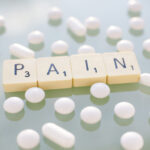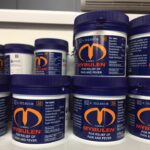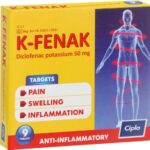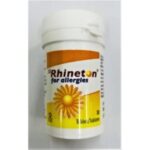Ciplactin Tablets: Uses, Dosage, Side Effects
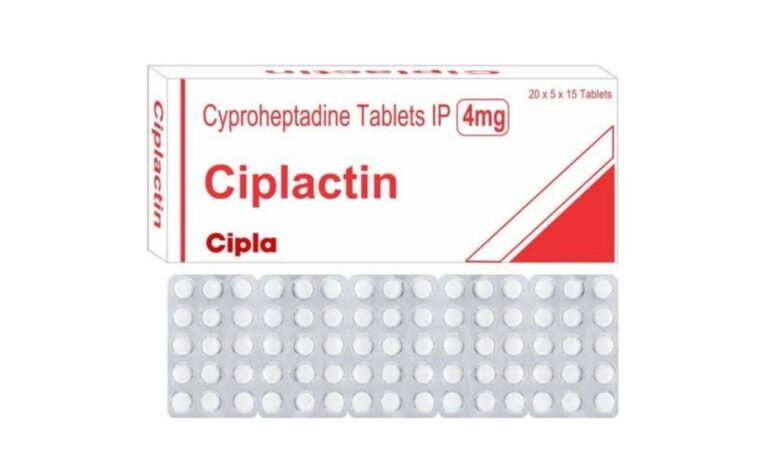
Ciplactin tablets is a brand of Cyproheptadine containing 4mg of the active ingredient. Ciplactin tablets is an antihistamine used to relieve allergy symptoms such as watery eyes, runny nose, itching eyes/nose, sneezing, hives, and itching.
Ciplactin tablets works by blocking a certain natural substance (histamine) that your body makes during an allergic reaction. This medication also blocks another natural substance in your body (serotonin).This medication should not be used in newborn or premature infants.
What should I tell my health care provider before I take Ciplactin tablets?
They need to know if you have any of these conditions:
• any chronic disease
• glaucoma
• prostate disease
• ulcers or other stomach problems
• an unusual or allergic reaction to cyproheptadine, other medicines foods, dyes, or preservatives
• pregnant or trying to get pregnant
• breast-feeding.
How should I take Ciplactin tablets?
Take Ciplactin tablets by mouth with a glass of water. Follow all directions on your prescription label. Your doctor may occasionally change your dose to make sure you get the best results. Do not use Ciplactin tablets in larger or smaller amounts or for longer than recommended.
Do not give this medicine to a child younger than 2 years old. You should not use antihistamine medication to make a child sleepy. Death can occur from the misuse of an antihistamine in very young children.
Tell your doctor if you have any changes in weight. Ciplactin tablets doses are based on weight (especially in children and teenagers), and any changes may affect the dose.
This medicine can cause you to have a false positive drug screening test. If you provide a urine sample for drug screening, tell the laboratory staff that you are taking cyproheptadine.
Store in a tightly-closed container at room temperature, away from moisture and heat.
Overdosage: If you think you have taken too much of this medicine, seek emergency medical attention or call the Poison Help line at 1-800-222-1222. Overdose symptoms may include extreme drowsiness, hallucinations, very dry mouth, dilated pupils, pale or reddish skin, tingly feeling, vomiting, restlessness (in a child), weak or shallow breathing, or a seizure (convulsions).
What if I miss a dose?
If you miss a dose, take it as soon as you can. If it is almost time for your next dose, take only that dose. Do not take double or extra doses.
What may interact with Ciplactin tablets?
Do not take this medicine with any of the following medications:
• MAOIs like Carbex, Eldepryl, Marplan, Nardil, and Parnate
This medicine may also interact with the following medications:
• alcohol
• barbiturate medicines for inducing sleep or treating seizures
• medicines for depression, anxiety, or psychotic disturbances
• medicines for movement abnormalities
• medicines for sleep
• medicines for stomach problems
• some medicines for cold or allergies.
This list may not describe all possible interactions. Give your health care provider a list of all the medicines, herbs, non-prescription drugs, or dietary supplements you use. Also tell them if you smoke, drink alcohol, or use illegal drugs. Some items may interact with your medicine.
What should I watch for while using this medicine?
Visit your doctor or health care professional for regular check ups. Tell your doctor or health care professional if your symptoms do not start to get better or if they get worse.
You may get drowsy or dizzy. Do not drive, use machinery, or do anything that needs mental alertness until you know how this medicine affects you. Do not stand or sit up quickly, especially if you are an older patient. This reduces the risk of dizzy or fainting spells. Alcohol may interfere with the effect of this medicine. Avoid alcoholic drinks.
Your mouth may get dry. Chewing sugarless gum or sucking hard candy, and drinking plenty of water may help. Contact your doctor if the problem does not go away or is severe.
This medicine may cause dry eyes and blurred vision. If you wear contact lenses you may feel some discomfort. Lubricating drops may help. See your eye doctor if the problem does not go away or is severe.
This medicine can make you more sensitive to the sun. Keep out of the sun. If you cannot avoid being in the sun, wear protective clothing and use sunscreen. Do not use sun lamps or tanning beds/booths.
What side effects may I notice from receiving this medicine?
Side effects that you should report to your doctor or health care professional as soon as possible:
• allergic reactions like skin rash, itching or hives, swelling of the face, lips, or tongue
• agitation, nervousness, excitability, not able to sleep
• chest pain
• fast, irregular heartbeat
• trouble passing urine or change in the amount of urine
• seizures
• unusual bleeding or bruising
• unusually weak or tired
• yellowing of the eyes or skin
Side effects that usually do not require medical attention (report to your doctor or health care professional if they continue or are bothersome):
• constipation or diarrhea
• headache
• loss of appetite
• nausea, vomiting
• stomach upset
• weight gain.
This list may not describe all possible side effects. Call your doctor for medical advice about side effects. You may report side effects to FDA at 1-800-FDA-1088.
Where should I keep my medicine?
Keep out of the reach of children. Store at room temperature between 15 to 30 degrees C (59 to 86 degrees F). Keep container tightly closed. Throw away any unused medicine after the expiration date.
You May Also Find Useful Information on: Cipla Actin Pills

